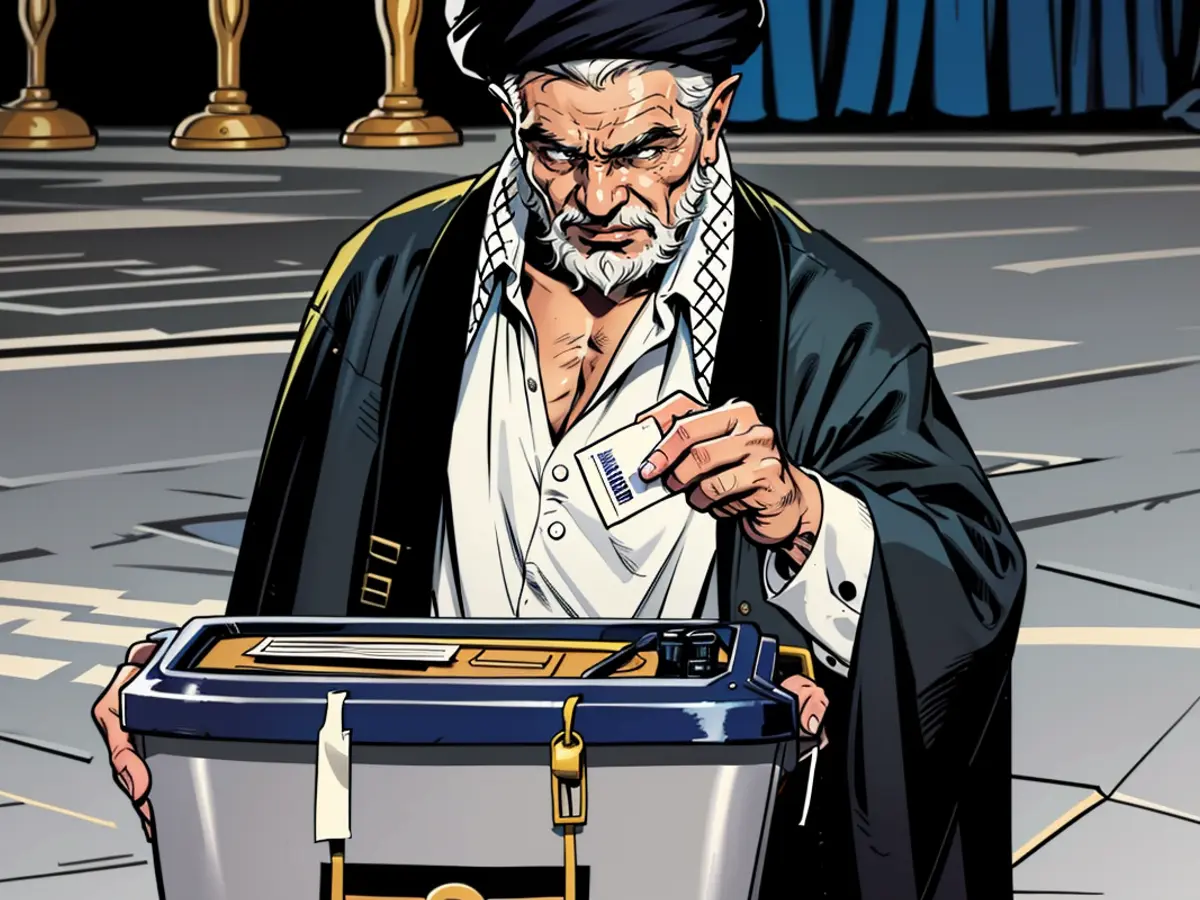Choice - After Raisi's death: Iran elects new president
After the death of President Ebrahim Raisi, Iran chooses a successor. Religious leader Ayatollah Ali Khamenei opened the election traditionally with his ballot casting in the center of the capital Teheran. The presidential election is marked by a severe economic crisis, tensions with the West, and frustration over power and government, particularly among the younger population. The first results are expected on Saturday.
Approximately 61 million voters are called upon to elect a new government head in the Islamic Republic. Polling stations are open from 8.00 am to 6.00 pm local time (3.30 pm to 1.30 pm CET) with the possibility of extension. The election follows Raisi's death, who died in a helicopter crash in May. If no candidate wins more than 50% of the votes, the two strongest candidates will face each other on July 5 for a runoff.
The so-called Guardian Council, a powerful Islamic oversight body, has only approved six candidates for the election. Two candidates withdrew. The fundamentalists, loyal and extreme conservatives supporting the system, are the strongest faction. Among them, a power struggle is raging between the incumbent Parliament Speaker Mohammed Bagher Ghalibaf and the hardliner Said Jalili. As the most significant challenger, the moderate politician and former Health Minister Massud Peseschkian is considered.
Conservative camp divided - hope among reformist politicians
Ghalibaf, a former general of the powerful Revolutionary Guards, is considered a conservative power politician. Jalili represents more radical positions. He was once part of Chamenei's inner circle and worked in the office of the religious leader Ayatollah Ali Khamenei. Under the controversial former President Mahmud Ahmadinejad, Jalili served as Chief Negotiator in the Nuclear Talks. Until recently, supporters of the regime and fundamentalists had hoped to agree on a top candidate.
The most dangerous challenger is considered to be the moderate politician and former Health Minister Massud Peseschkian. In his campaign, the politician criticized the headscarf policy and campaigned for civil positions with voters. At the same time, Peseschkian expressed his loyalty to Khamenei, the powerful Revolutionary Guards, and praised the drone and rocket attack on Israel as a source of pride for the Iranian nation. After casting his vote, he said: "We will try to maintain friendly relations with all countries except Israel."
With a high voter turnout, Peseschkian's chances could be quite good. In particular, if it goes to a runoff and the Iranian people have to decide between a Conservative and a Reformer. The President in Iran has only limited power as head of government. The head of state is the 85-year-old religious leader Khamenei, who has the final say in all strategic matters.
Little hope for significant domestic political changes.
Belief in major domestic political changes has been lost among most residents, particularly young people. The death of the young Kurdish woman Jina Masa Amini in the fall of 2022 sparked nationwide protests against the Islamic ruling system. The turnout for the annual parliamentary election reached a record low of around 40 percent. However, more people usually participate in presidential elections. Some activists, along with the imprisoned Nobel Peace Prize laureate Narges Mohammadi, called for a boycott of the election.
During the campaign, candidates debated mainly about ways to alleviate the massive economic crisis in the country. Iran, due to its controversial nuclear program, is subject to international sanctions and largely cut off from the global financial system. The country needs billions in investments. In addition to economic issues, candidates discussed domestic policies, cultural politics, and dealing with the West.
Iran's political system combines republican and theocratic elements since the 1979 Revolution. Free elections do not exist: The Guardian Council's oversight committee always checks candidates' qualifications. Fundamental criticism of the system is not tolerated, as the suppression of protests in recent years demonstrated.
Report by IRNA State Agency, Farsi.
- Following the unexpected death of President Ebrahim Raisi in a helicopter crash, the focus shifts to the upcoming presidential election in Iran.
- Ayatollah Ali Khamenei, the current religious leader and head of state, initiated the election process by casting his ballot in the heart of Tehran, setting the stage for a new presidential election.
- The election campaign in Israel is characterized by an ongoing severe economic crisis, tensions with the West, and rising widespread frustration among the younger population, particularly over power and government issues.
- The run-off election is scheduled for July 5 if no candidate secure more than 50% of the votes in the first round, according to the 85-year-old Ayatollah Khamenei.
- Six approved candidates have been selected for the election by the Guardian Council, an influential Islamic oversight body in Iran, with two notable withdrawals from the contest.
- Among the six chosen candidates, a power struggle unfolds between conservative frontrunners Mohammed Bagher Ghalibaf and hardliner Said Jalili, reflecting the ongoing division within the conservative camp.
- Moderate politician and former Health Minister Massud Peseschkian, considered the most significant challenger, has emerged as the most dangerous candidate, garnering significant support for his stance on civil positions and criticisms of the headscarf policy.








